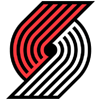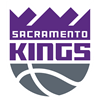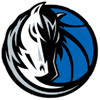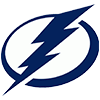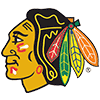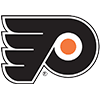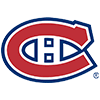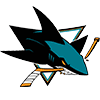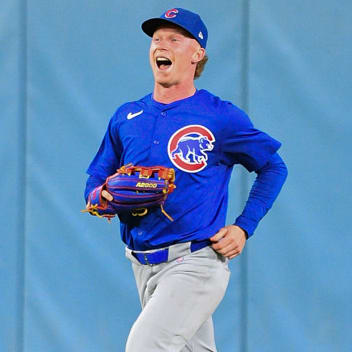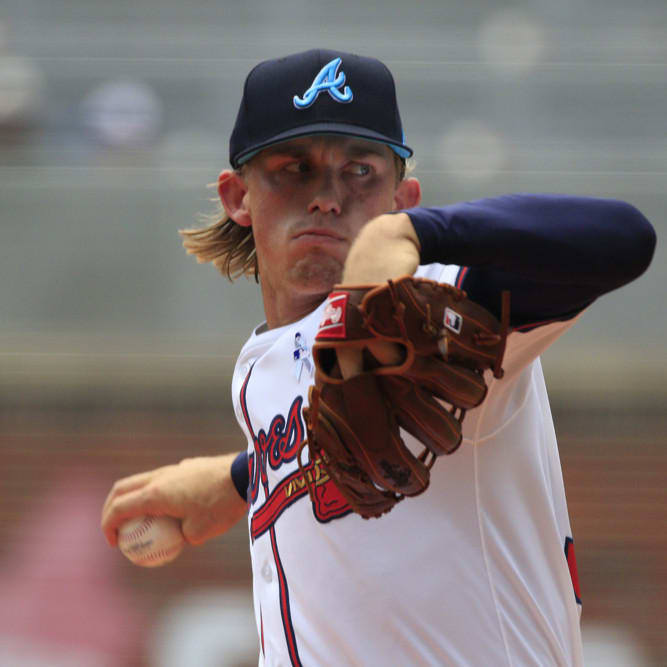As we all await word as to whether we'll see baseball in any form this year, this week I wanted to address a question I get fairly often. Who are the best non-closing relievers to consider if I didn't pay the asking price for a top closer? Here are 10 pitchers to consider. The factor for me in choosing these pitchers is the likelihood that the current closer will lose his job.
Note: Not seeing someone you are curious about? Drop me a question in the comments section and I'll do my best to address quickly.
Corey Knebel, MIL
It's even possible that the Brewers slot Knebel in as their closer from Day 1, with the idea of using Josh Hader in the seventh/eighth innings. Hader had another strong year in 2019, recording 37 saves with a 2.62 ERA and a ridiculous 138 strikeouts in 75.2 innings. Knebel, of course, missed all 2019 after undergoing Tommy John surgery, but Knebel had a huge 2017 with 39 saves and a 1.78 ERA with 126 strikeouts. He wasn't as good in 2018 (3.58 ERA), but he did record a 2.97 FIP with an elite 14.3 K/9. If healthy, he's certainly someone to consider later in drafts. Hader is obviously one of the league's more skilled relievers, but the Brewers have seemed to prefer the flexibility of using him in higher-leverage situations should they come up in the seventh or eighth innings. I'd still expect 10-plus saves from Hader, but it wouldn't
As we all await word as to whether we'll see baseball in any form this year, this week I wanted to address a question I get fairly often. Who are the best non-closing relievers to consider if I didn't pay the asking price for a top closer? Here are 10 pitchers to consider. The factor for me in choosing these pitchers is the likelihood that the current closer will lose his job.
Note: Not seeing someone you are curious about? Drop me a question in the comments section and I'll do my best to address quickly.
Corey Knebel, MIL
It's even possible that the Brewers slot Knebel in as their closer from Day 1, with the idea of using Josh Hader in the seventh/eighth innings. Hader had another strong year in 2019, recording 37 saves with a 2.62 ERA and a ridiculous 138 strikeouts in 75.2 innings. Knebel, of course, missed all 2019 after undergoing Tommy John surgery, but Knebel had a huge 2017 with 39 saves and a 1.78 ERA with 126 strikeouts. He wasn't as good in 2018 (3.58 ERA), but he did record a 2.97 FIP with an elite 14.3 K/9. If healthy, he's certainly someone to consider later in drafts. Hader is obviously one of the league's more skilled relievers, but the Brewers have seemed to prefer the flexibility of using him in higher-leverage situations should they come up in the seventh or eighth innings. I'd still expect 10-plus saves from Hader, but it wouldn't surprise me at all to see Knebel lead the team in save opportunities.
Jairo Diaz, COL
Wade Davis is expected to open as the team's closer and while he looked good in limited action this spring, Davis also had an 8.65 ERA last year, including a 17.47 mark from July 31 onward. Assuming Davis does eventually lose the job, Diaz and possibly Scott Oberg could step in. Oberg had a solid 2019 with a 2.25 ERA, but his 3.52 FIP indicated some luck was involved, and his BB% leapt from 5.3 in 2018 to 10.3 last year. Enter Diaz. At a listed 254 pounds, Diaz is a big guy with a big fastball (97 mph), and though he put up a 4.53 ERA, Diaz's FIP was 3.69 and he limited hitters to a 31.3 FB%, which is excellent and very handy when you're pitching in Coors Field ... or Arizona ... or nowhere in 2020. Looking ahead to 2021, Wade Davis' contract will have expired, leaving Diaz competing with guys like Oberg and perhaps Carlos Estevez for the "closer of the future" label.
Will Smith, ATL
Mark Melancon will open as the Atlanta closer, but Smith looks to be the better pitcher, and after signing a three-year $39 million contract this winter, Smith will probably be pushing for saves at some point. Melancon pitched to a so-so 3.61 ERA and 1.32 WHIP last year and overall since 2017, the results are similar — 3.70 ERA, 1.42 WHIP. Melancon had a great four-year run from 2013-2016, including a whopping 98 saves from 2015-2016, but he hasn't been the same since. Smith, however, recorded 34 saves last year with a 2.76 ERA and since 2018, Smith has a 2.66 ERA and 167:36 K:BB in 118.1 innings. Perhaps Melancon leverages his strong spring and holds the job all year, but I wouldn't bet on it.
Mychal Givens, BAL
For now, we have Hunter Harvey listed atop the closer depth chart. In early March, manager Brandon Hyde said Harvey was "definitely an option" to be the team's closer this season. He averaged north of 98 mph with his fastball last season after reaching the big leagues for the first time. Harvey, though, also had a 4.81 ERA and 1.31 WHIP last season in the minors with a history of poor health, so expecting him to stay healthy enough to record 30-40 saves seems a bit too aspirational. Givens would seem to be next man up despite a poor spring on top of last year's 4.57 ERA. There is some opportunity for that number to improve, as Givens' 12.3 K/9 is elite. His walk rate, though, has increased in each of the last two years, topping out at a 3.7 BB/9 last year. Like many hurlers, Givens' HR/9 spiked last year, going from 2018's 0.47 HR/9 to a whopping 1.86 in 2019. His 22.8 percent HR/FB rate was nearly double the league average, so that should come down, and if he can improve his control a bit, a sub-3.00 ERA is possible.
Yimi Garcia, MIA
From being cut loose by the Dodgers to closer with the Marlins? It's possible. Some of Garcia's 2019 numbers look pretty impressive, including allowing just 40 hits in 62.1 innings with a 66:14 K:BB. The 0.87 WHIP was elite, and the 3.61 ERA wasn't bad by any means. Unfortunately, Garcia was run out of town due to an ugly 2.17 HR/9 on top of 2018's 2.82 mark. When he makes mistakes, they go a long way in the opposite direction. Garcia's 29.6 GB% was a career low and his .171 BABIP indicates he was lucky on the balls that didn't leave the yard. He's a risky option, but with just Brandon Kintzler ahead of him, Garcia could see some saves at some point. Kintzler walked four batters without a strikeout this spring and averages just 92-93 mph with his fastball, making middle relief a possibility for his role this year.
Matt Magill, SEA
We have Yoshihisa Hirano atop the depth chart in Seattle, but this situation is in flux. Hirano has just four saves in two seasons, and last year in Arizona, he recorded a 4.75 ERA and 1.38 WHIP while averaging just 91.1 mph with his fastball. It seems likely he'll be utilized as a setup man more than a closer, but time will tell. Magill dealt with shoulder issues early this spring, but among the other options in Seattle, Magill's profile fits the best to close games. He averaged 95.3 mph with his fastball, contributing to a strong 27.9 K%. His walk rate saw a slight improvement to 8.7 percent, and though a 1.2 HR/9 is higher than ideal, it's really not all that bad these days. Despite his relative lack of experience, Magill is already 30, and could potentially find himself on the move again if he starts hot.
Rafael Montero, TEX
The Rangers made some moves this winter to bolster the rotation (Corey Kluber, Kyle Gibson and Jordan Lyles), but little was done to address the bullpen. That leaves Jose Leclerc as the closer and then a bunch of questions. Even Leclerc is a question, as while he did reach 100 strikeouts in 2019, that came with a 4.33 ERA and 1.33 WHIP. He was as wild as ever, walking 13 percent of hitters, though he did fan a healthy 33.4% of them. If Leclerc can ever figure out his control, he can be an elite closer, but if he can't, that could open the door for Montero. I admit, I didn't remember Montero being this good last year. After opening in the minors, Montero recorded a strong 31:2 K:BB in 18.1 innings, making his way to the Rangers in July. There, the success continued with a 2.48 ERA, 0.97 WHIP and 34:5 K:BB in 29 innings. His 95.9 mph average fastball was easily a career high. He could find himself closing games at some point.
Daniel Hudson, WAS
Hudson or Sean Doolittle? For now we have Doolittle atop the depth chart, but that could eventually change. His 4.05 ERA was a bit high, but Doolittle finished with allowing two runs in eight innings, and his ratios were solid, including a 9.9 K/9 and 2.3 BB/9. Like many, he was bit by the HR bug (1.65 HR/9), but a career-low 25.3 GB% didn't help. He's the favorite for now, but don't overlook Hudson or even Will Harris. Speaking of Hudson, he's back on a two-year deal after an outstanding 2019 that included a 2.47 ERA and 1.14 WHIP. He even recorded eight saves, including five the last two weeks of the season. Hudson's 3.83 FIP suggested some potential ERA regression this year, but he'll likely find himself getting saves at some point.
Ryan Helsley, STL
With Jordan Hicks (elbow) sidelined, Giovanny Gallegos is expected to be the Opening Day closer. Gallegos was great least year, posting a 2.31 ERA, 0.81 WHIP and 93:16 K:BB in 74 innings. He was HR prone at times, but we can't argue with a 33.3 K% and 5.7 BB%. That said, he doesn't have a long track record, leaving the possibility a guy like Helsley could get a look. Helsey was pretty solid after being promoted last year, posting a 2.95 ERA and 1.25 WHIP. For a pitcher who averaged 97.8 mph with his fastball, Helsley's 7.9 K/9 was disappointing, but he fanned 404 hitters in 375.1 minor league innings, so I'd expect the strikeout rate to climb as he gets more experience.
Ty Buttrey, LAA
After an excellent 2019 that saw him accumulate a 2.48 ERA, 1.02 WHIP and 75:16 K:BB in 72.2 innings, Hansel Robles would appear to have a good grip on the closer job. Robles sort of came out of nowhere, as in his previous four seasons, the right-hander had a 3.90 ERA, 1.29 WHIP and a sub 3:1 K:BB. But after cutting 2018's 4.0 BB/9 in half last year, Robles showed that drastic year-over-year improvements in control are possible. Should he take a step back in 2020, Buttrey is likely next in line with his 97-plus mph fastball. Buttrey could use some improvement in his command, as 69 hits in 72.1 innings isn't ideal for a closer, but that should come in time.










